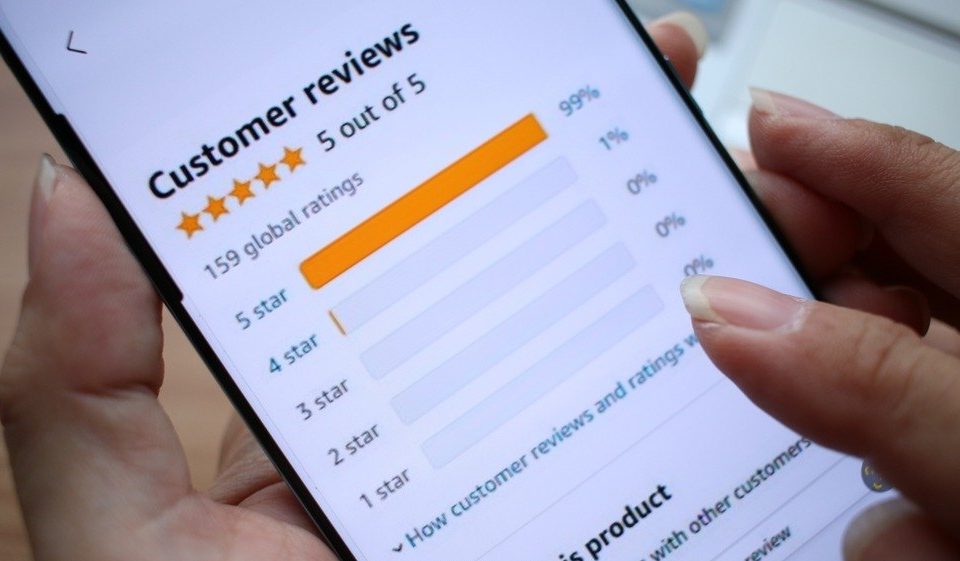Businesses may soon be fined $50,000 for every fake review you read online if the newly proposed FTC rules are approved

Remember some of the fake 5-star reviews you read online? Now, they may also be illegal if the newly proposed rules by the Federal Trade Commission (FTC) become law. According to a study conducted by Invesp, 82% of consumers have read a fake review in the last year.
This week, the FTC has proposed new rules aimed at combatting the buying, selling, and manipulation of online reviews. If approved, the rules would impose fines of up to $50,000 per fake review for each instance where a consumer sees it.
“It’s the biggest step to date by the federal government to deter the insidious market for buying and selling fake reviews,” The Washington Post reported. While this represents a significant step by the federal government to deter the deceptive market of fake reviews, the FTC’s rules do not hold major review sites like Yelp, Google, Tripadvisor, and Amazon directly accountable.
The FTC’s perspective is that fake reviews have always been illegal as they mislead consumers. The proposed rules seek to establish clear guidelines and empower the FTC to take stronger action. Violations include misrepresenting a person’s experience with a product, claiming reviews are written by nonexistent individuals, and prohibiting insiders such as company employees from writing reviews without appropriate disclosures.
The rules apply not only to those who write fake reviews but also to intermediaries who procure them and companies that pay for fake reviews, with the expectation that they should have known they were fake.
“Anyone who’s done any shopping online knows that trying to actually get objective information about the product is so fraught because there’s so much commercial misinformation, so many deceptive reviews,” says Samuel Levine, director of the FTC’s Bureau of Consumer Protection.
Certain gray areas exist, such as when businesses ask genuine customers to leave reviews, which is still allowed. The rules also do not explicitly prohibit offering gift cards to legitimate customers for leaving reviews, as long as their opinions are not coerced. However, transparency is encouraged in such cases.
The rules also address other questionable tactics, including review “hijacking” where a merchant replaces legitimate reviews with those from customers who never used the product. Running a website that claims to host independent reviews while secretly selling its own products or services is also prohibited. Additionally, businesses cannot suppress negative reviews through intimidation or legal threats.
However, the FTC’s rules do not extend liability to social media or review sites unless these companies are directly involved in procuring fake reviews. Moreover, there is no requirement for sites to verify user identities or confirm whether they have actually used a product.
Meanwhile, review sites often assert immunity under Section 230 of the Communications Decency Act, which protects online platforms from being held responsible for user-generated content. This immunity makes it challenging for the FTC to hold these sites accountable, even if it desired to do so.

